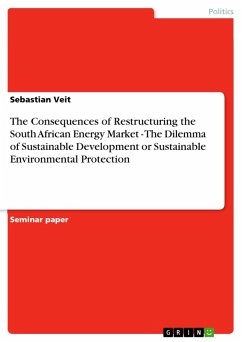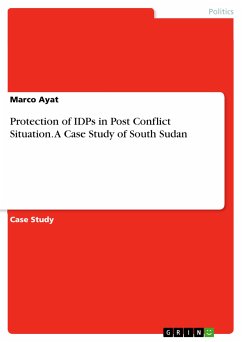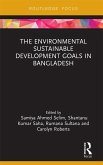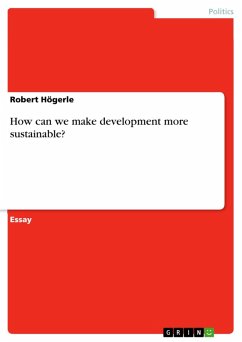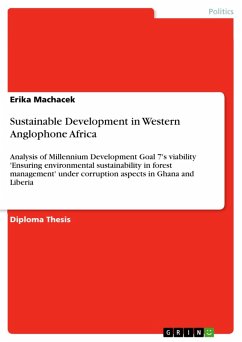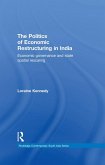Seminar paper from the year 2004 in the subject Politics - International Politics - Topic: Development Politics, grade: 1,3, University of KwaZulu-Natal (FACULTY OF SOCIAL SCIENCES), language: English, abstract: Energy is a key issue for the African continent due to the higher consumption of power in the developing countries. Rapid growth in the economies of developing countries in recent years has led to an increase in incomes which is reflected in higher living standards. This goes hand in hand with an increase in consumption of electricity, petrol, coal, natural gas and other fuels. The dilemma of maintaining competitive energy prices in order to encourage economic growth on one hand, and on the other hand of generating energy in an environmentally friendly way is a global concern. This dilemma plays a key role in South Africa especially.1The major energy producer, ESKOM Holdings, privatized 30% of its generating capacety in 2002 and is now caught in the triangle of providing its customers cheap electricity, in an environmentally responsible way and at the same time creating profits for its investors as well as the government. The above mentioned three interests are often in conflic with each other. The aim of this research paper is to investigate how ESKOM will address pressing issues of satisfying the described conflicts. First, I will give a general introduction into the particularities of the energy sector, which is followed by a brief description of ESKOM. This includes an overview how electricity is currently generated in South Africa. Additionally I will critically assess ESKOM's research projects. In the second part, I will give examples for environmentally sustainable energy production. In the concluding part I will give my outlook as to how the triangle of conflicts can possibly be addressed. Right at the onset I would like to pint out that a further assessment on the effects of ESKOMs additional stake holders cannot be undertaken in this paper, since this should be addressed with the focus on private households which probably have to face higher energy costs due to an increase of profitability demands. As the Business Day analyzes regarding the para statal ownership dilemma: "It has become apparent since Alee Erwin was appointed Public Enterprises Minister in April that the state's biggest assets are in crisis....The issue of whether state-owned entities are privatized or not is really irrelevant. But those which operate in a business environment need to operate as tough, smart businesses."
Dieser Download kann aus rechtlichen Gründen nur mit Rechnungsadresse in A, B, BG, CY, CZ, D, DK, EW, E, FIN, F, GR, HR, H, IRL, I, LT, L, LR, M, NL, PL, P, R, S, SLO, SK ausgeliefert werden.

